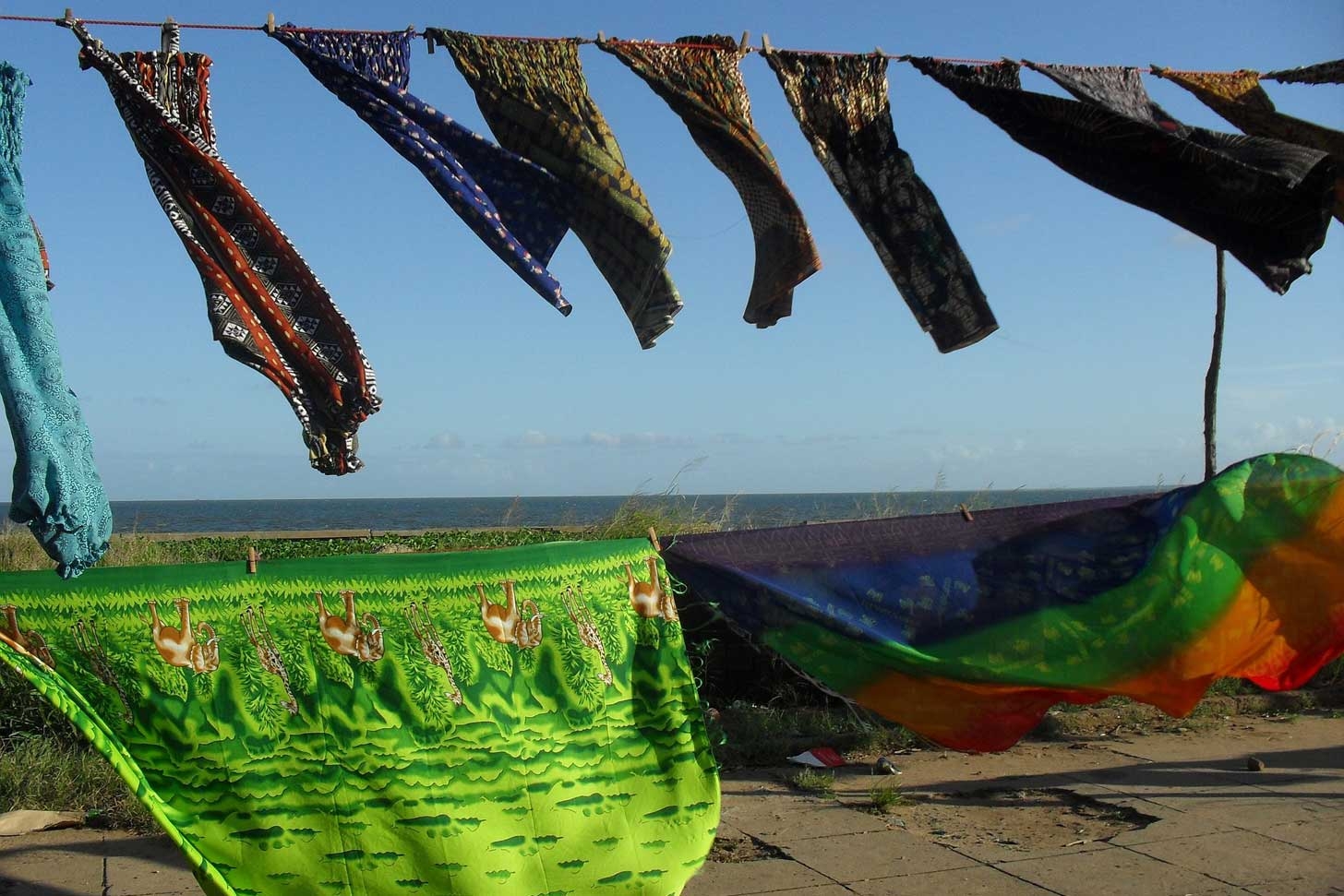Crocodiles and hippos are dangerous, but these guys can really get under your skin.
In Africa, there are plenty of things that can get you: crocodiles, hippos, lions. But even if you never step foot outside a city, you still must beware of a centimetre-long creature reminiscent of something from a Stephen King novel.
It's called the putzi fly, a.k.a. the mango fly or the skin maggot fly, and it's every bit as nasty as the name sounds.
Laundry drying on a line. Who could possibly be frightened by the idyllic image of sheets blowing in the wind on a sunshine-filled day—unless you happen to be visiting East or Central Africa, home to the putzi. A type of parasitic blow-fly, the female lays its eggs on wet clothing. Later, when humans put on the garments, the larvae penetrate beneath the skin. Because the larvae need air to breathe, they eat their way through flesh to create a vent at the surface. If left alone, the maggots will eventually mature and tunnel back out through the skin, leaving gaping wounds, before dropping to the ground and pupating into adult flies.
Who could possibly be frightened by the image of sheets blowing in the wind on a sunshine-filled day—unless you happen to be visiting East or Central Africa, home to the putzi.
Although I never personally fell prey to putzis while teaching in Zimbabwe, they did feast on several of our students, as well as staff members. One of my colleagues experienced the horror of a putzi larva erupting from his thigh. Another teacher discovered she was on the menu when she felt a maggot wiggling around inside her hip. That’s why every time the smallest of rashes or pimples appeared on my skin, I was convinced a flesh-eating fly had finally fulfilled its destiny by taking up residence within my body.
How do you know if you've got a gruesome guest?
At first, it's hard to distinguish between a mosquito bite and a putzi encounter, but a few days later, the bump will become a sore, itchy, inflamed boil with a tiny opening in the centre of the lesion, which oozes pus. That opening is both the putzi's air hole and pathway for discharging its fluids.
To get rid of the unwelcome intruders, victims often cover the air holes with petroleum jelly to prevent the maggots from breathing. The parasites then emerge and can be squeezed out (like a whitehead) or be plucked out with tweezers. For those a bit more squeamish, a trip to the doctor is in order, especially to prevent infection.
The good news is there's a simple way for travellers to avoid becoming an incubator for the vile invaders.
I managed to sidestep the putzi through a combination of ironing and hanging clothes in the living room to dry, rather than outside, just to be doubly safe. (Although for some reason, displaying wet unmentionables greatly diminished my dating life.)
The heat from an iron kills putzi eggs. If you've ever been on an upscale safari in East Africa, that's why you might have noticed even your socks and underwear were returned pressed.
The only other alternatives are drying clothes indoors to stay out of the path of putzis or using a tumble dryer, a luxury uncommon for most, and nonexistent in the bush.
Finally, don't walk outside barefoot. Putzis, in addition to being attracted to damp clothes, generally lay eggs in soil contaminated with faeces or urine.
If you follow these guidelines, it’s likely you’ll avoid a putzi invasion, but no plan is foolproof because sooner or later – despite all of humanity's efforts – Africa always wins.










